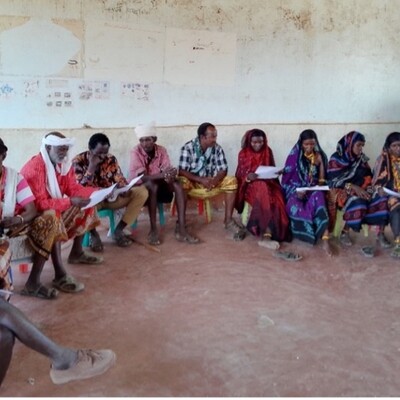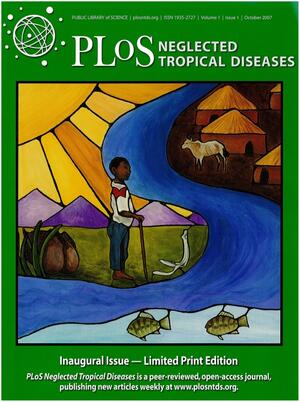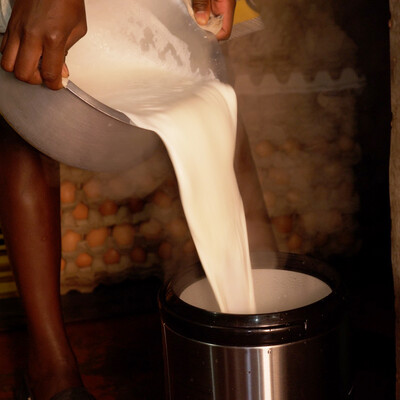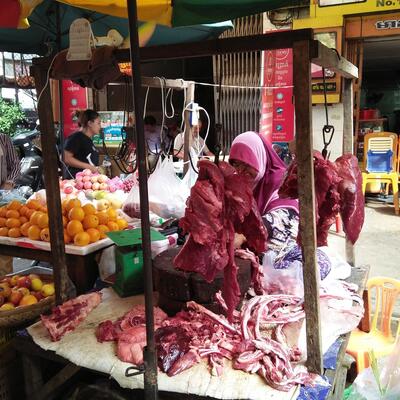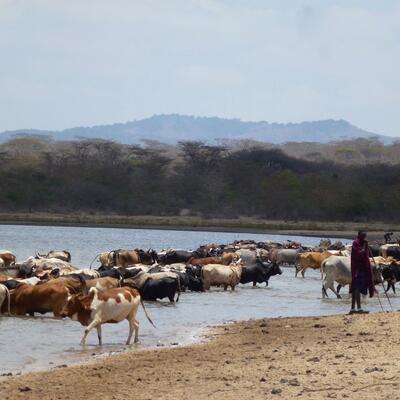
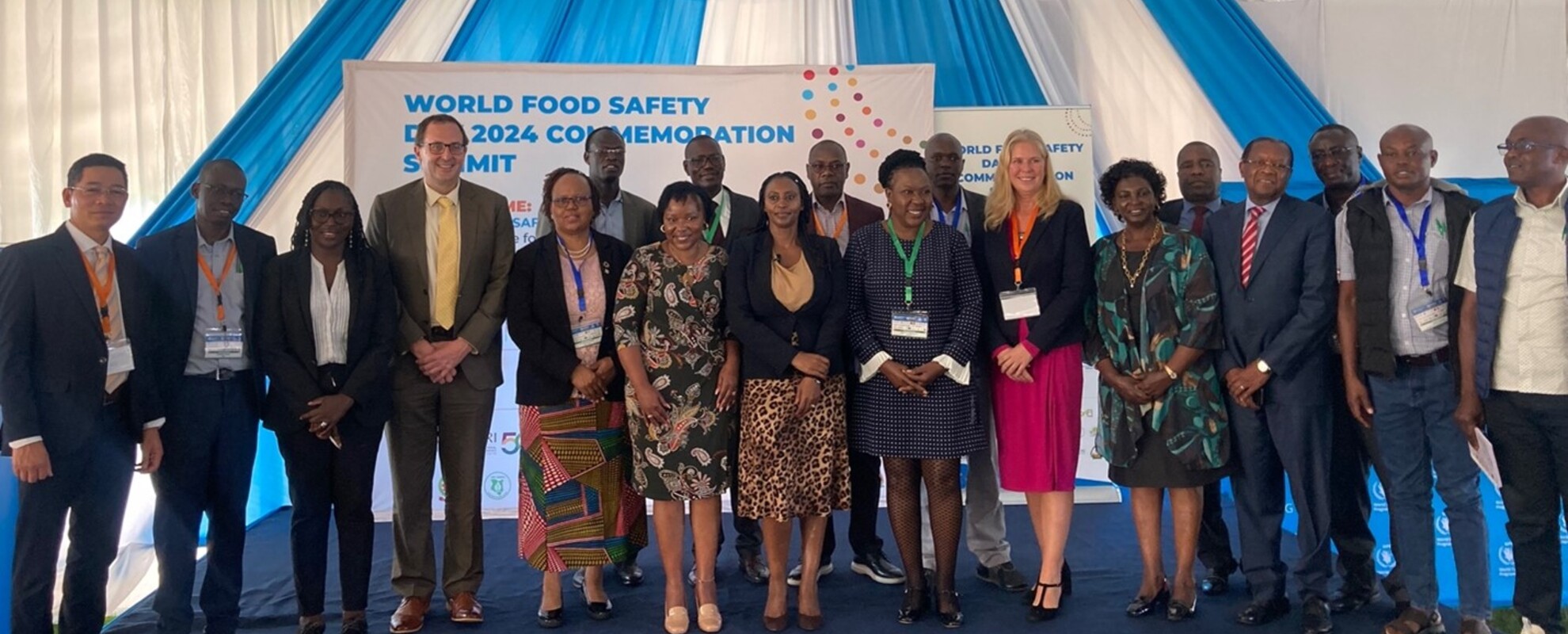
World Food Safety Summit 2024: A call to prepare for the unexpected to avert food safety challenges
Having access to readily available and affordable safe food is critical for the health of every man, woman, and child. Issues with food safety, however, are abundant across the globe, causing sickness and death to many, especially vulnerable populations like children and the elderly. In fact, 600 million people globally suffer from foodborne disease, resulting in 475,000 deaths annually, mostly in low- and middle-income countries. Moreover, in Africa alone, sickness from foodborne diseases amounts to a staggering USD 16.7 billion in productivity loss.
As a result, food safety has become a critical issue at the forefront of the development and public health sectors, leading to the establishment of World Food Safety Day in 2018 by the United Nations General Assembly. The day aims to draw attention and inspire action to help prevent, detect and respond to public health threats associated with unsafe food. On 7 June, the fifth World Food Safety Day was celebrated at a summit held in Nairobi, Kenya, with the theme of ‘prepare for the unexpected’.
At the summit, representatives from the International Livestock Research Institute (ILRI), Siboniso Moyo and Hung Nguyen, discussed ILRI’s research and work focusing on food safety.
Moyo noted that ‘the call to action is that we all, whether individuals at home or professionals in the industry, need to work together to use the knowledge we have to improve practices to avert food safety challenges.’
ILRI has implemented several food safety projects in the Global South in collaboration with many local, national, and international partners, including the African Union, Interuniversity Council for East Africa (under the East African Community), the Kenya Dairy Board, and most recently, the government of Nyandarua County, Kenya, to name few.
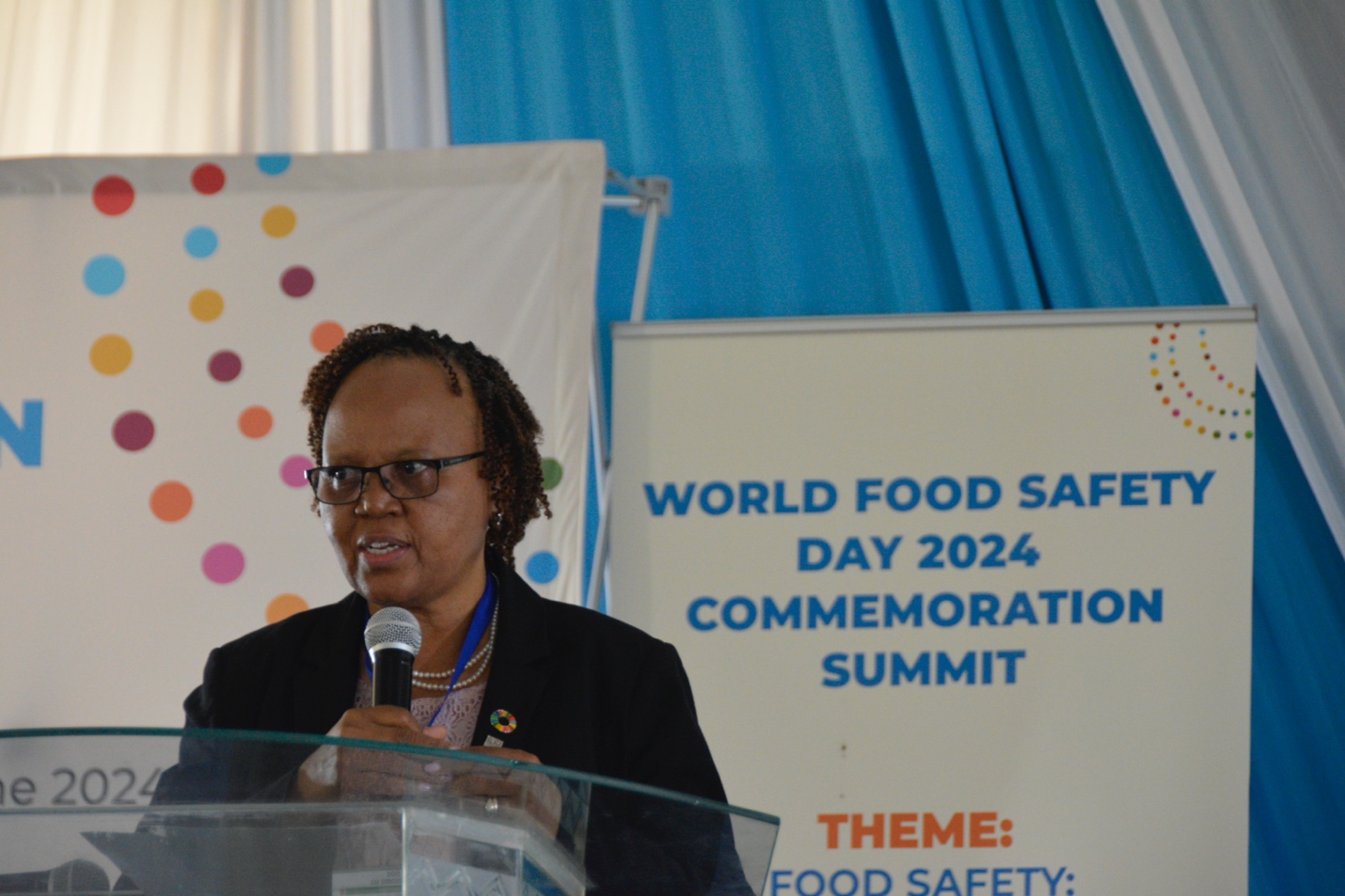
These projects have included:
- Generating evidence on the health impact and economic cost of hazards in food and feeds across different counties and developing and testing interventions to reduce human exposure and improve animal and planetary health.
- Improving food safety in traditional markets and researched their potential in improving nutrition and health. For example, ILRI showed that training informal vendors in milk safety and promoting milk to consumers increased children’s consumption by nearly half a glass a day.
- At the regional level, ILRI has worked with the Interuniversity Council for East Africa (under the East African Community) to develop benchmarks for a Bachelor of Science in Food Safety program. This will improve the employability and mobility of Kenyan graduates and ensure their qualifications are both cutting-edge and adapted to the realities of the Kenyan food sector.
- Continently, ILRI is partnering with the Africa Union Commission to develop food safety guidelines for the informal food sector, ensuring greater recognition, representation, and investment in food safety.
- On 4 June ILRI participated in the National Food safety activities at Soko Mpya Wet Market in Nyandarua County.
ILRI’s Hung Nguyen reiterated the importance of working together to tackle food safety issues, stating that ‘Food safety needs inter-sector collaboration. We need to improve food safety together.’
At ILRI, a One Health approach is used to address food safety issues, through the collaborative One Health Partnership Framework. The framework facilitates coordination between national stakeholders and international partners, strengthening the exchange of research, experiences and practical knowledge to address food safety challenges both nationally and internationally.
Also speaking at the summit was Pil Holn Maargaard, representing the Royal Danish Embassy in Nairobi.
Holn Maargaard provided an interesting perspective on food safety, saying: ‘You won’t see the success of your labours – it’s about not letting people die, being sick or disabled. You will only see when you fail – when there’s an outbreak, when people die. So how do we prepare for the unexpected? The unexpected is when people will see us, when there’s an outbreak or people fall sick.’
‘Food safety is everyone’s business,’ she continued, ‘and it is everyone’s responsibility.’
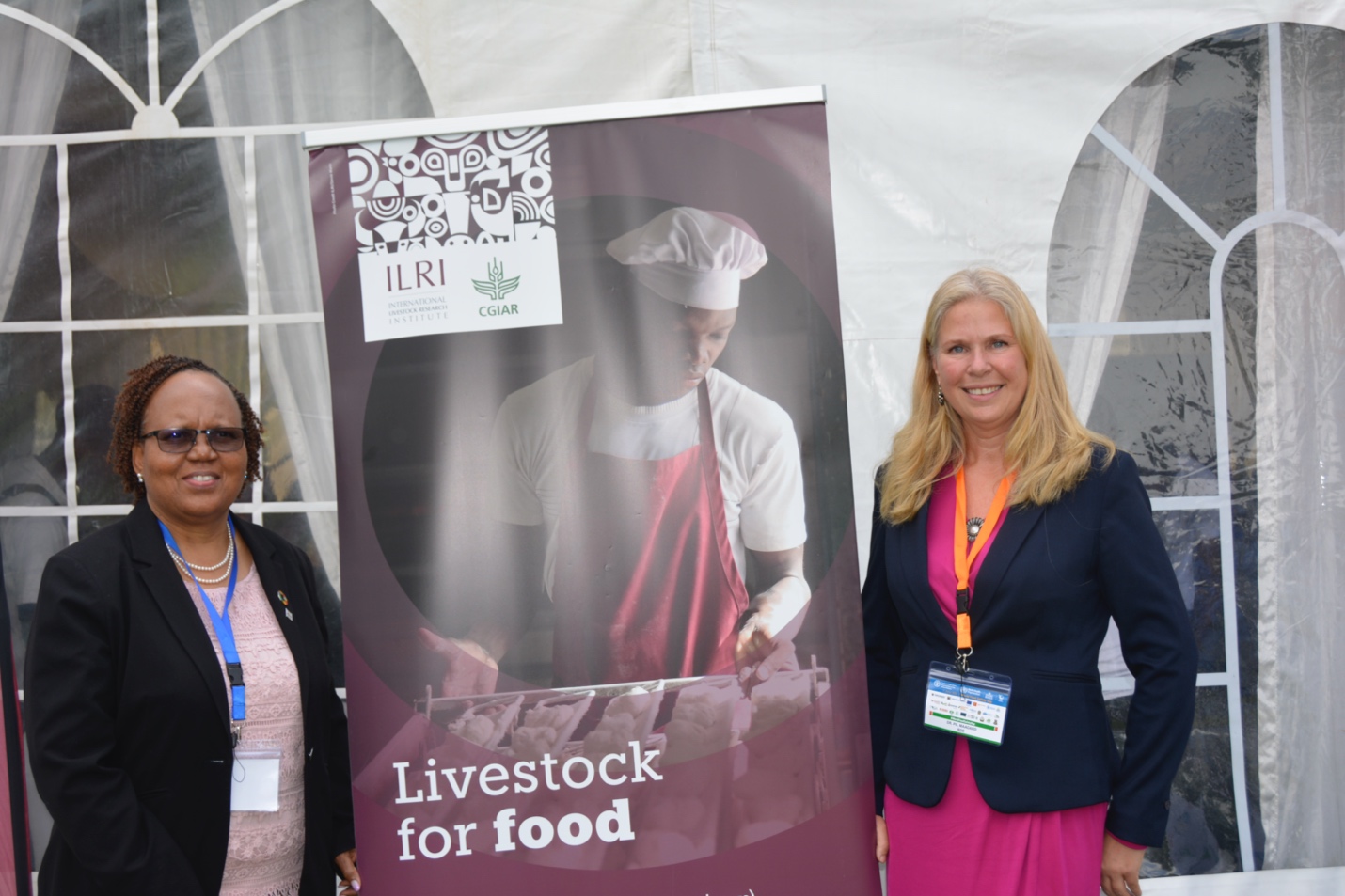
Siboniso Moyo (left) and Pil Holn Maargaard (right) at the summit (photo: Brenda Patrick/ ILRI).
The overall message from the summit was clear: preparing for the unexpected requires effective collaboration at every level.
For more information about ILRI’s activities for World Food Safety Day 2024 visit:
For more information about ILRI’s activities for World Food Safety Day 2023 visit:
You may also like
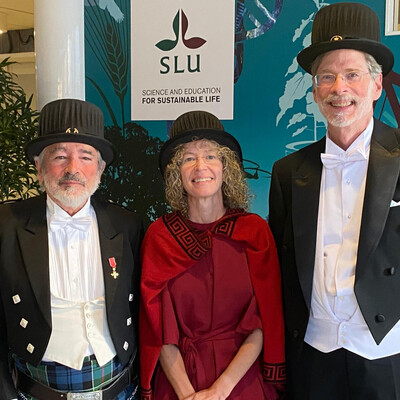
ILRI News
Delia Grace Randolph appointed 'Honorary Doctor' by the Swedish University of Agricultural Sciences
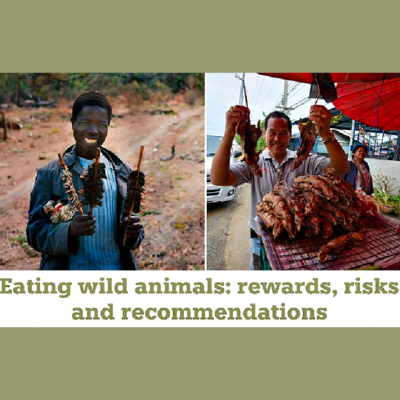
ILRI News
Major ILRI-CGIAR-livestock contributions at the recent World One Health Congress in Cape Town
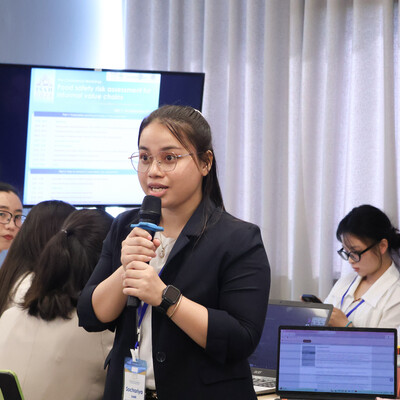
ILRI News
Workshop on food safety risk assessment strengthens capacity in informal value chains in Southeast Asia
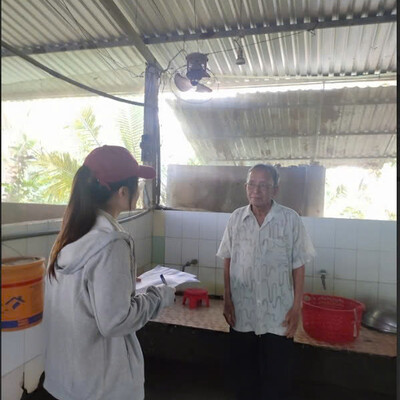
ILRI News
Building capacity for the next generation of One Health researchers: Insights from SEAOHUN fellows at ILRI
Related Publications
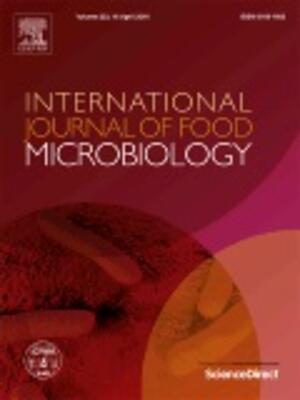
Accumulation of microbial hazards and assessment of food hygiene associated with broiler chicken processing at open air food markets in Maputo, Mozambique
- Lamar, F.
- Mondlane-Milisse, A.
- Brito, D.R.A.
- Mucache, H.N.
- Jesser, K.J.
- Fagnant-Sperati, C.S.
- Victor, C.
- Shioda, K.
- Fafetine, J.M.
- Saíde, J.Â.O.
- Fèvre, Eric M.
- Mattioli, M.C.
- Levy, K.
- Freeman, M.C.

Moving milk and shifting risk: A mixed methods assessment of food safety risks along informal dairy value chains in Kisumu, Kenya
- Smith, L.C.
- Stringer, A.
- Owuor, K.O.
- Ndenga, B.A.
- Winter, C.
- Gerken, Keli N.

Dietary mycotoxins: an overview on toxicokinetics, toxicodynamics, toxicity, epidemiology, detection, and their mitigation with special emphasis on aflatoxicosis in humans and animals
- Kibugu, J.
- Munga, L.
- Mburu, D.
- Maloba, F.
- Auma, J.E.
- Grace, Delia
- Lindahl, Johanna F.





